
2020 NOMINEES FOR ASOR BOARD ELECTIONS
The ASOR 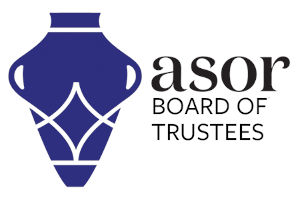
There are three candidates running for two openings as Member-elected Trustees for 3-year terms (Melissa Bailey Kutner, Theodore Burgh, and Margaret Cohen). There are two candidates (running unopposed) for two openings as Institutionally-elected Trustees for 3-year terms (Carol Meyers and Jason Ur). All ASOR members are eligible to vote in the Member-elected Trustee Election, while only Institutional Representatives of the 70 ASOR-member schools may vote in the Institutionally-elected Trustee Election.
ASOR will conduct the elections by online ballot, and all members and Institutional Representatives will receive the appropriate ballot(s) via email on or about October 21, 2020. We will send out two reminders, and all ballots must be completed by 12:00 PM Eastern Time on Monday, November 9. If you have difficulties completing the online ballot (once they are distributed), please contact Marta Ostovich at programs@asor.org.
Nominees for Membership-elected Trustees
(two to be elected)
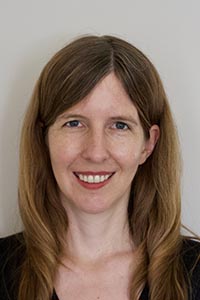
Melissa Bailey Kutner
Melissa Bailey Kutner is Assistant Professor in the department of Ancient Studies at the University of Maryland, Baltimore County. Her research focuses on the late Byzantine economy of Jordan and on the Roman economy more broadly, including issues of standardization and cognitive approaches to value. She has excavated at a variety of sites in Jordan since 2008, and since 2017 has acted as a co-director of the Dhiban Excavation and Development Project. This project investigates long-term occupation at the site of Dhiban in west-central Jordan: how such occupation has waxed and waned in relation to broader regional and political developments and how inhabitants of the site reused and repurposed architecture and features of the landscape. Dr. Kutner focuses especially on the late Byzantine prosperity of the site and its early Islamic transition. She also served as chair of the Archaeology of the Byzantine Near East session at ASOR for six years.
Mission Statement: Throughout my career as an archaeologist, ASOR has played a central role in supporting my own and my colleagues’ research. I am excited to see ASOR continue to grow in ways that increase its diversity, vibrancy, accessibility, and relevance, and I look forward to supporting the goals of ASOR’s mission statement, including excavation, outreach, education, and raising awareness of heritage issues. Since threats to heritage often coincide with intense humanitarian crises, I am especially interested in spreading awareness of the dangers to heritage in ways that also forefront the needs of local communities, and that see archaeological heritage as inextricably linked to human needs and not in opposition to them. I am also interested in promoting best practices in field schools, including ongoing reflection on teaching methods, curricula, and inclusive policies, and encouraging more diversity among field school participants. While my university classes are full of a wide and diverse range of students, those who actually come to Jordan tend to be less so, often because of economic challenges. I hope to increase opportunities for them to excavate and conduct research, and to explore additional ways that ASOR-related research can be made relevant to their lives.
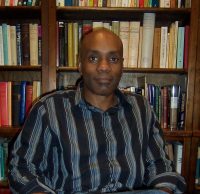
Theodore Burgh
Theodore Burgh is Professor and Chair of the Department of Philosophy and Religion at the University of North Carolina Wilmington. He holds his degrees from the University of Arizona (M.A./Ph.D.), Howard University (M.A.), and Hampton University (B.A.). His research interests are the archaeology of ancient Israel and the Near East, the Hebrew Bible, archaeomusicology (the study of ancient music culture), the reconstruction of Syro-Palestinian and Near Eastern music culture and cataloging musical artifacts, utilization analysis of Syro-Palestinian sacred and secular space, and ethnomusicology.
Mission Statement: I have been an active ASOR member since 1996 and a part of the membership committee for nearly 20 years. I now serve as Chair of this incredible group.
As a trustee, I will continue to bring commitment and experience. Building on existing success, ASOR can expand its services to the Academy generally and to members specifically. For example, as a result of the pandemic, we have demonstrated that we can work and thrive virtually. We should continue these efforts to develop virtual archaeology as a sustained part of our organization. Moreover, we should continue implementing technology (e.g, live streaming, recorded Zoom lectures and papers). The popularity and inclusiveness of Zoom lectures displays the desire and need for this approach in the 21st century. These kinds of venues share the fabulous work of our field with new people and those who previously had little to no access to these invaluable sources.
Lastly, I would like to see continued energy with the membership and outreach committee. Efforts with the Friends of ASOR will be essential to maintaining the organization’s future membership and developing inclusivity.
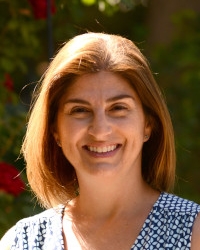
Margaret Cohen
Margaret Cohen’s academic training is in Hebrew Bible, and her archaeological training comes from more than twenty years of excavations in Israel, Jordan, and Egypt. She currently lives on the campus of The Albright Institute in Jerusalem where, in pre-COVID times, she was an active participant in the local scholarly community exchange. Prior to her time in Jerusalem, Margaret taught in both large research and small liberal arts settings and has a deep appreciation for and interest in the many forms of the student experience. Her current research focuses on foodways, how food power was wielded in the biblical world, and how some modern-day food movements are informed by ancient texts and practices.
Mission Statement: In a time when uncertainty pervades everything from healthcare to higher education, both steadiness and agility are required for ASOR to flourish, to contribute its expertise to the discipline, and to promote its relevancy in an ever-faster changing world. This may mean altering old models that can feel comfortable, but are not necessarily as productive as they once were, such as imagining future possibilities for scholarly meetings, developing new kinds of venues for publication and exchange of ideas, and embracing innovative programs appearing elsewhere in academia: small, virtual workshops; opportunities reserved for non-TT scholars; social and educational opportunities for members of the general public; the use of virtual tools to connect with future scholars, such as high-school seniors thinking about college or college students considering majors. Driven by its membership, ASOR must constantly adapt to the, at times, divergent needs of those members. Those working to make their mark, those navigating life within their academic positions as well as outside the workplace, and those with hard-won experience that can better the journey for others, all must succeed for the organization to succeed. I am honored to be asked to stand for election to the dedicated group already doing this work, striving to make future-ASOR meaningful for us all.
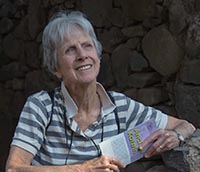
Carol Meyers
A native Pennsylvanian, Meyers earned her A.B. with honors at Wellesley College and her M.A. and Ph.D. in Near Eastern Studies at Brandeis. She began archaeological field work as an undergraduate; subsequently she worked for decades at numerous sites in Israel and co-directed several projects in Galilee. She is currently Mary Grace Wilson Professor Emerita at Duke University.
Meyers specializes in biblical studies, archaeology, and the study of women in the biblical world. A prolific scholar, she is the author of more than 450 articles, reports, reference-book entries, and reviews; and she has authored, co-authored, or edited twenty-two books. Her 2013 book, Rediscovering Eve: Ancient Israelite Women in Context is a landmark multidisciplinary study of women in ancient Israel. Meyers has also written several biblical commentaries; two of them were co-authored with her spouse Eric Meyers, as have been the final excavation reports of several excavations. She is now co-editing a book on food and foodways in ancient Israel (Bloomsbury) and another on households in the biblical world (Oxford).
Meyers has served ASOR in many capacities, including multiple terms on the publications and archaeological-policy committees, since the 1970s. She is currently vice-president of the AIAR, and in 2013 she was president of the Society of Biblical Literature.
Mission Statement: As a member for many decades, I have seen ASOR respond repeatedly to numerous challenges—including economic, political, ideological, and technological ones—and come out stronger. At present, the constraints of a pandemic have added to the ongoing challenges. I’m especially concerned about what the curtailment of field work means for our many archaeological projects, and I believe the board must help those projects remain vital with or without a consistent presence in the field. Similarly, the issue of diversity has emerged recently and requires ASOR’s compassion and action. I hope that the new strategic plan now being developed will help our organization find appropriate ways to address these and other issues and to insure that all members, both junior and senior ones, have a voice.
The energy and wisdom that ASOR’s management team has brought to the task of creating the 2021 virtual annual meeting have been exemplary and inspiring. Also, the concern about the appropriateness of the ASOR name has been addressed with great care, and the outcome of the surveys and deliberations signal a spirit of sensitivity as we move further into this decade. My hopes for the future are that our organization will continue to meet the challenges of these difficult times.
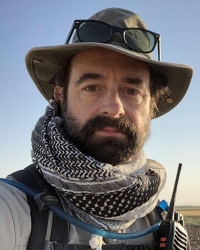
Jason Ur
Jason Ur is Stephen Phillips Professor of Archaeology and Ethnology in the Department of Anthropology at Harvard University. He specializes in early urbanism, landscape archaeology, and remote sensing, particularly the use of declassified US intelligence imagery. He was trained in Anthropology at the University of Pennsylvania (BA 1994) and in Near Eastern Languages and Civilizations at the University of Chicago (PhD 2004). He has directed field surveys in Syria, Iraq, Turkey, and Iran. He is the author of Urbanism and Cultural Landscapes in Northeastern Syria: The Tell Hamoukar Survey, 1999-2001 (2010). Since 2012, he has directed the CAP-affiliated Erbil Plain Archaeological Survey, an archaeological survey in the Kurdistan Region of northern Iraq. He is also preparing a history of Mesopotamian cities.
Ur joined ASOR as a student member in the late 1990s. He held the ASOR Mesopotamian Fellowship in 2000-2001 and served on the Committee on Mesopotamian Civilization from 2009-2013. He was the plenary speaker at the 2014 ASOR annual meeting. He organized and chaired the Settlement and Society in the Ancient Near East session from 2008-2010. The Archaeology of the Kurdistan Region of Iraq session, which he founded and chaired from 2017-2019, has now been accepted as a Standing Session.
Mission Statement: As a member of ASOR’s Board of Trustees, I will promote its mission to create and disseminate knowledge of the history and culture of the societies of the Near East, past and present. I intend to champion a geographically-inclusive ASOR that involves broader areas of West Asia beyond ASOR’s traditional areas of strength, and a comparative anthropological perspective to complement its culture-historical emphases. I’m particularly interested to amplify new voices in ASOR: those of our research partners in the Middle East, and those of the next generation of scholars in our graduate and undergraduate classrooms. Finally, I hope to advocate for digital methods of research and outreach, with the goal of making ASOR members’ scholarship more accessible to our colleagues, to the public, and to future generations.